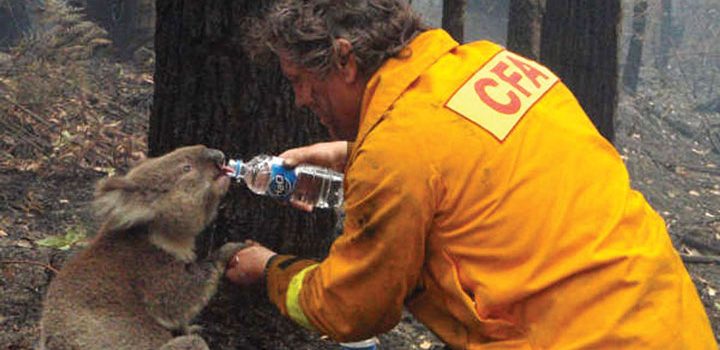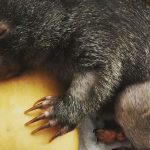What do you do if you hit an animals in your vehicle or find an animal on the road?
Most important thing to do if you hit an animal is not drive off! Sadly this happens often.
- If you have hit an animal or find one in the middle of the road please stop and check what condition they are in.
- Firstly you need to see whether they are alive or dead.
- If they are dead, please move them off the road. You need to do this with your safety as a first priority, especially when dealing with kangaroos and wallabies.
- Make sure your car is pulled safely to the side of the road, with your hazard lights on.
- If other people stop, ask them to help you. Get them to slow or stop other traffic and ask them to put their headlights on.
If the animal is heavy, ask them to help you move them if needed.
If you have a spray can mark them with a cross to let other cars know they have been check and are no longer alive. Marking them also means you have checked their pouch so please do this before marking them.
Despite the mother dying in the accident, often the baby can still be alive for several days after mum has passed away. It is then your duty to also check whether the baby is alive or dead, and if alive get him/her to a carer.
How do you check pouches?
Firstly move the animal, yourself and your car off the road so there are no further accidents or injuries.
Carefully check the pouch with your hands, you might need a torch.
When joeys are in their early developmental stages their mouths can be fused to their mother’s teat. It is important that you DON’T pull him/her from her mother’s teat as it might damage their mouths. If you think this is the case you will need to cut the teat of the mouth and be very careful not to hurt the joey if you don’t feel you can do this please call Wildlife Victoria, a shelter or a wildlife carer to come to your assistance. You can find your nearest shelters number by contacting your local council or DELWP.
If you think you can remove the joey safely without injuring it, please do so remembering that they are very fragile. In some case you may need to cut the pouch open to reach them.
More than anything you must keep them warm. Young joeys can’t regulate their body temperature. Keep them wrapped in a towel, a jumper and close to your own body, put the heater on in the car if it’s cold.
Once they are safe, please take them to the vets or call Wildlife Victoria (13 000 94535), a shelter or nearby carer to come and collect them.
Common animals that have pouches are: kangaroos, wallabies, koalas, wombats, possums and gliders.
Injured animals
If the animal has been injured due to being hit by a car, or by any other means such as an animal attack or bad weather please call someone immediately to help.
Do not leave the injured animals, however do not attempt to move a Kangaroo or wallaby off the road yourself if they are alive.
Wait until someone who is experienced in these animals can come to your assistance as they might have a broken pelvis or back or pouch young which can be further injured.
If safe place a towel or blanket over the animals head to reduce stress while you wait for a wildlife rescuer.
Accidents can happen so it is important to have a range of numbers in your phone incase this occurs, especially if you live in a wildlife dense area. If you can’t get in contact with Wildlife Victoria (13 000 94535), your local Shelter or a Wildlife rescuer, you can always call the police and ask them to come and assist you.
If you are dealing with a small animal there is still no one able to help you, and you think you can safely capture the animal without further injury, please transport him/her to the nearest local vets. Vets by law have to treat all wildlife for free and will place them with a carer if they are treatable. We recommend Lort Smith Animal Hospital, Ivanhoe East Veterinary Hospital, Melbourne Zoo vet clinic or Healesville Sanctuary.
During transport remember to keep the animal in a warm, dark and quiet place. Do not attempt to feed the animal and do not force them to drink.
The most important thing to do for any animal you find is to provide a QUITE, warm, dark, safe area with access to water, until someone can provide them with further care.
Note: If the wildlife you have found in a marine animal please DO NOT approach or touch the animal. DO NOT allow anyone else near the animal either.
For all other marine animals please contact DEWLP on 136 186


